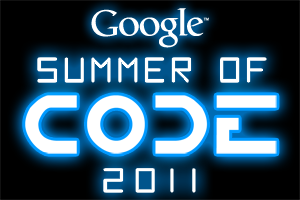
Every Friday this summer we have spotlighted three or four of the new organizations participating in this year’s Google Summer of Code. For our final post in the summer series we have organization administrators from Processing, Orange, and FOSSASIA discussing their projects and some of the tasks their students have been working on all summer.
By Stephanie Taylor, Open Source Programs
Processing is a programming language, development environment, and online community that promotes software literacy within the visual arts. It focuses on programming graphics, animation, and interactive applications. Because Processing is free and open source, it is easily accessible to schools and students around the world. The Processing community has written over one hundred libraries to extend the software into other domains including computer vision, data visualization, music, and electronics.
This is our first year participating in Google Summer of Code and we are thrilled to have two great students helping us on our project. Peter Kalauskas is busy working on Dynamic Library Loading. Currently the Processing software is extended by libraries that need to be downloaded and installed separately. Peter’s work will make it possible to add and update libraries through our IDE (Integrated Developer Environment). Harshani Nawarathnai is working on enhancing the PDE (Processing Development Environment); work has started on a version that is built on top of Eclipse. We hope this will bring advanced IDE features into Processing, while maintaining the simplicity of our editor/compiler. For now, there's a working Eclipse plug-in, but we're working to support our own standalone application that supports all the syntax and static checking tools available in Eclipse for other languages.
By Casey Reas, Processing Organization Administrator
----------
Orange, Data Mining Fruitful & Fun, is an open source component-based data mining and machine learning software suite. Orange features easy to use yet powerful and flexible visual programming front-end for explorative data analysts and visualization, and Python bindings and libraries for scripting. Being developed at the Bioinformatics Laboratory at the Faculty of Computer and Information Science, University of Ljubljana, Slovenia, it is actively used in research, incorporating cutting edge tools and techniques, and it is constantly evolving.
This summer, through the Google Summer of Code program, we have three students working on improving various aspects of Orange. Marinka Zitnik is working on providing the Orange community with a unified and efficient interface to matrix factorization algorithms and methods. Wencan Luo is extending Orange to support multi-label classification. Miha Cancula is replacing the current visualization framework based on Qwt with a custom library, depending on Qt. We are already seeing very useful results from the students' work.
By Mitar Milutinovic, Orange Organization Administrator
----------These are just a few of the 48 new organizations participating in this 7th year of the Google Summer of Code. For a complete list of the 175 organizations participating in the Google Summer of Code visit our program site. This year’s program wraps up with ‘pencils down’ on August 22nd, for other important dates please check our timeline.
FOSSASIA is participating in Google Summer of Code for the first time this summer. The goal of the FOSSASIA network is to bring young Open Source developers together with experienced international developers to join or start new Free and Open Source projects. FOSSASIA’s Google Summer of Code projects focus on open source for social change and communication. All the students are putting in a lot of effort, however their progress is varying as students have different skill levels.
The project of “foo-script” (Adam Rakowski) is moving forward most quickly. He expands the uses for the next Crypto-Stick (an USB hardware device with an integrated openGPG smart card firmware) edition and develops plugins for popular applications like Firefox. With the Stick you can easily encrypt your emails and achieve convenient online authentication. Secondly Chanrithy Thim, the MoonOS developer from Cambodia has been improving Appshell, a framework for applications that lets developers easily create application bundles. A single file contains all the data and files needed to run an application, so all a user has to do is to launch it. Google Summer of Code projects will be presented at this year’s FOSSASIA Summit taking place in Ho Chi Minh City (Saigon) on November 11-13, 2011.
By Hong Phuc, FOSSASIA Organization Administrator
By Stephanie Taylor, Open Source Programs